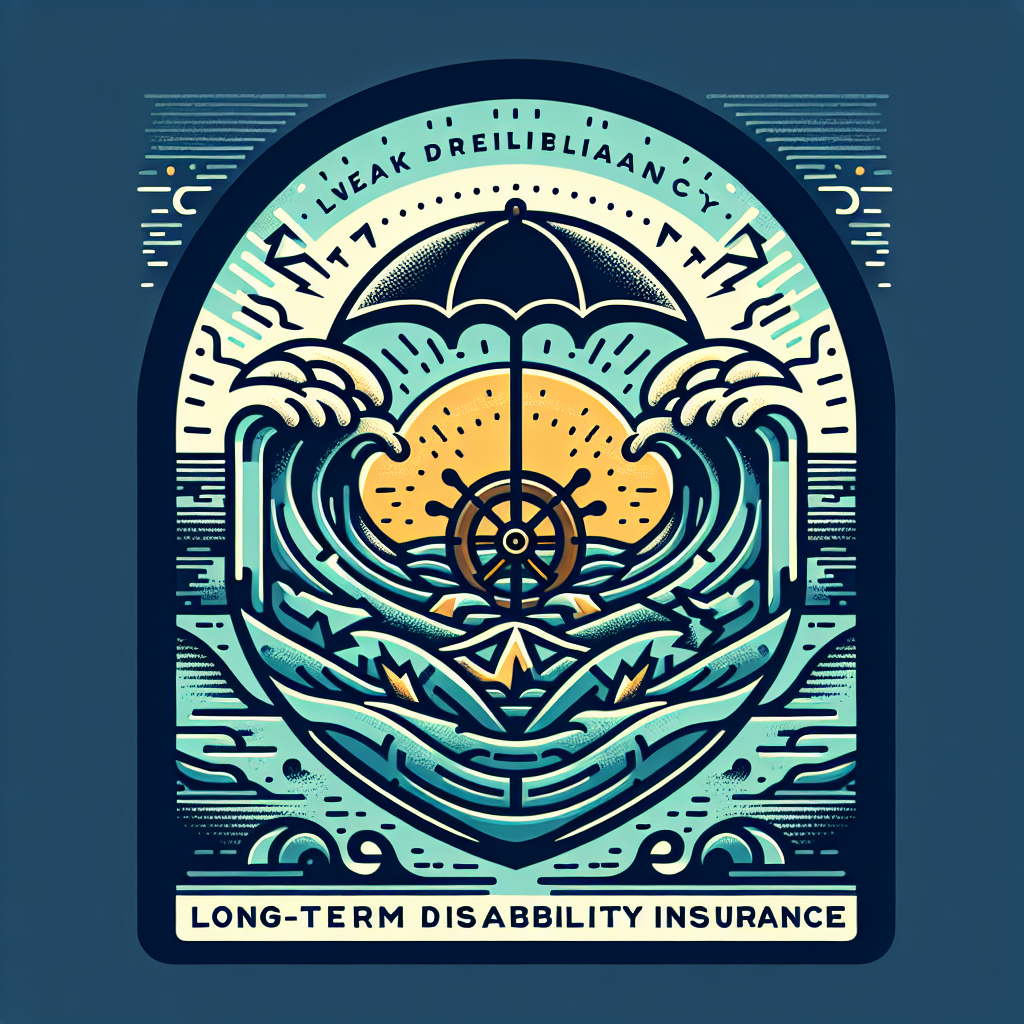Filed under Disability Insurance on
Top Long-Term Disability Insurers to Avoid

When considering long-term disability insurance, the stakes are incredibly high. This type of coverage is meant to protect you against the financial ramifications of being unable to work due to a disabling condition. However, not all insurance providers are created equal, and choosing the wrong company can result in additional stress during challenging times. In this article, we will delve into the top long-term disability insurers to avoid, equipping you with the knowledge needed to make informed decisions.
Understanding Long-Term Disability Insurance
Long-term disability insurance is designed to replace a portion of your income if you become unable to work for an extended period due to illness or injury. Typically, this policy kicks in after a short-term disability insurance policy ends, offering sustained financial support when you need it most.
Key Factors to Consider When Choosing an Insurer
Before selecting a long-term disability insurer, it's crucial to understand what makes a provider reputable and reliable. The following factors are vital:
- Financial Stability: Look for insurers with robust financial ratings. A company’s ability to pay claims is a critical consideration.
- Claim Processing: Assess the insurer’s track record in processing claims. Swift, transparent processes are a good sign.
- Reputation: Consult customer reviews and industry ratings to gauge past performance and customer satisfaction.
- Policy Details: Scrutinize the terms, conditions, and exclusions laid out in the policy. Look for clear, comprehensible coverage terms.
Top Long-Term Disability Insurers to Avoid
The following list represents some long-term disability insurers that have garnered less-than-favorable reviews from consumers and industry watchers alike. Our analysis is based on several factors, including customer feedback, claims processing efficiency, and clarity of policy terms.
1. Insurer A
Customers have frequently expressed dissatisfaction with Insurer A, pointing to a history of delayed claim processing and unsatisfactory customer service. The firm has also been criticized for ambiguous policy documentation, leading to confusion over what is covered. In the current climate where transparency is paramount, Insurer A leaves much to be desired.
According to financial analysts, Insurer A has also shown signs of financial instability, which can potentially affect its ability to honor claims. Therefore, seeking alternative insurers with stronger financial credentials might be a wise decision.
2. Insurer B
Insurer B has been described as having a cumbersome claims process, often requiring extensive documentation and persistently denying valid claims. This creates unnecessary stress for policyholders already grappling with disability. Moreover, the company’s communication has been rated poorly, with many clients finding it challenging to get in touch with representatives to resolve issues.
Expert opinions suggest that the complexity of Insurer B’s policies, coupled with a lack of comprehensive customer support, makes it an insurer to steer clear of when searching for reliable long-term disability coverage.
3. Insurer C
Though Insurer C initially presents itself as a cost-effective option, many customers have found its low premiums come at the expense of service quality. Complaints often focus on the insurer’s strict and often arbitrary interpretation of policy “waiting periods” before payouts commence. Such practices can delay necessary financial support.
Insurer C also has a poor track record regarding policy cancellations and benefit modifications, which can leave policyholders inadequately covered at the crucial moment. Research into industry trends suggests looking for alternative providers who offer both value and reliability.
Alternative Insurers with Positive Reviews
To ensure you make an informed choice, consider the following insurers that have received positive feedback for their reliable service and customer-focused policies:
1. Insurer D
With high praises for their expedited claim processing and transparent policy terms, Insurer D has built a reputation as a customer-centric provider of long-term disability insurance. Financial reports indicate a stable and secure company, further reassuring potential clients of its long-term viability.
Industry experts commend Insurer D for its proactive customer communication and fair handling of claims, making it a strong contender for anyone seeking peace of mind when choosing disability insurance.
2. Insurer E
Known for its competitive pricing coupled with excellent service, Insurer E offers comprehensive coverage options that attract discerning customers. With a clear policy structure and a history of timely claim settlements, policyholders can expect a straightforward experience, free of the usual hassle associated with insurance claims.
Testimonials from current policyholders affirm that Insurer E prioritizes client satisfaction, with quick responses to queries and issues, reinforcing its status as a top choice for long-term disability insurance.
Expert Advice on Avoiding Pitfalls
When navigating the insurance landscape, the following expert tips can help you avoid insurers to avoid and secure the best possible coverage:
- Read the Fine Print: Don’t overlook the details in policy documents. Understanding terms like “own occupation” vs. “any occupation” can make a substantial difference in claim outcomes.
- Consult Reviews and Ratings: Use online resources and speak with other policyholders to gauge an insurer’s reputation ahead of time.
- Speak with an Expert: Consider consulting with an insurance broker who can offer tailored advice based on your unique circumstances and requirements.
- Compare Multiple Quotes: Don’t settle for the first policy you review. Comparing different options can lead to finding the best value for your needs.
Conclusion
Choosing the right long-term disability insurance provider is a decision that should not be taken lightly. By avoiding the top long-term disability insurers prone to service and financial issues, and opting for trustworthy alternatives, you can better protect yourself and your income in the event of an unforeseen disability.
A well-researched choice will ensure peace of mind, allowing you to focus on recovery and adaptation, knowing that your financial stability is in good hands. Always stay informed and proactive, and you'll be better equipped to make decisions that serve your best interests over the long term.



